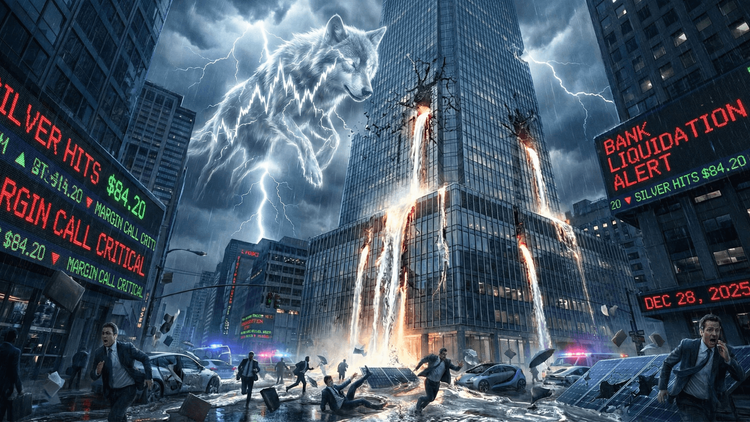Kovrig Sounds Alarm on China: What You Should Know Today
Key global developments: Kovrig's warning on China, China's stimulus plan, Cineplex's fine, climate change risks, and Boeing's labor dispute.

In today's fast-paced global economy, where geopolitics and business intersect, staying informed is essential for decision-makers. Here are five major developments that are shaping the world this morning.
Kovrig’s Warning to Canadian Businesses on China
Michael Kovrig, a former Canadian diplomat who was detained by Chinese authorities for over 1,000 days, has a critical message for Canadian businesses and investors: “Don’t engage with China unless absolutely necessary.” In a revealing interview with BNN Bloomberg, Kovrig laid out the risks involved in doing business with China, emphasizing how much the political landscape has shifted.
Kovrig highlights that the technocrats who once steered China’s economic ascent are no longer in control. Instead, political bureaucrats, focused on strengthening China’s global influence, now dictate policy. Kovrig warns that Canada must align its business decisions with the country’s geopolitical stance, as the growing partnership between China and Russia could present not only economic risks but also threats to democratic values.
For Canadian companies, the question is no longer just about profitability but about whether they are indirectly supporting regimes that could act against their broader interests. Kovrig’s warning comes at a time of heightened geopolitical tension, as businesses face a new era of risk management when dealing with China.
China’s Massive Stimulus Package: Can It Save the Economy?
China, the world’s second-largest economy, is facing serious challenges. Recent economic data suggests that the country may miss its 5% growth target for the second time in three years. In response, China has rolled out its largest stimulus package since the pandemic.
Key components of this package include slashing the central bank’s lending rate and lowering the amount that banks must hold in reserve to its lowest level in over five years. Beijing has also made moves to lower borrowing costs on over five trillion dollars in mortgages, aiming to stabilize its reeling real estate market.
Despite these efforts, many question whether the stimulus will be enough to overcome entrenched issues. The real estate crisis, compounded by weak consumer spending, suggests that the road to recovery could be long and uncertain. For global markets, China’s economic instability poses both risks and opportunities, making it a crucial area to watch for Canadian businesses and investors alike.
Cineplex Fined $38.9M for Drip Pricing: A Win for Canadian Consumers
In a landmark decision, Canada’s Competition Bureau has won a key legal battle against Cineplex, one of the country’s largest cinema chains. The issue? A controversial $1.50 online booking fee introduced by Cineplex in 2022, which the bureau argues amounts to “drip pricing”—a misleading tactic that adds hidden fees during the buying process.
The Competition Tribunal ruled in favor of the bureau, ordering Cineplex to pay $38.9 million in fines and legal costs. This is a significant victory for Canadian consumers, as the decision sets a precedent that businesses must be transparent with pricing.
The ruling sends a strong message to other industries that engage in similar practices, particularly in sectors like car rentals and event ticketing, where hidden fees are common. Cineplex has indicated that it plans to appeal the ruling, but for now, it’s a win for consumer rights in Canada.
Climate Change Insurance Costs May Force Relocations, Warns Canadian Regulator
The cost of insuring homes and businesses against climate risks is becoming unsustainable in certain regions, according to Peter Routledge, head of the Office of the Superintendent of Financial Institutions (OSFI). Speaking at a Vancouver business event, Routledge warned that increasing instances of extreme weather, from wildfires to floods, are driving up insurance premiums and may make some areas uninhabitable.
“We’re already seeing a pullback in earthquake insurance availability in British Columbia, and flood insurance could soon follow,” Routledge noted. As climate change continues to drive more frequent and severe weather events, businesses and homeowners may face tough choices about where they can afford to operate or live.
Routledge’s comments suggest that Canadian policymakers and the insurance industry will need to work together on innovative solutions, whether through mitigation strategies or, in some cases, relocation of communities. The economic implications of climate risks are becoming harder to ignore, particularly for industries like real estate, construction, and finance.
Boeing Offers Final Raise to Striking Workers: Will They Accept?
Boeing has made what it is calling its “final offer” to 33,000 striking workers, proposing a 30% wage increase. The aerospace giant, which has been negotiating with unions since September, is hoping to end the week-long strike with this new offer. Previously, Boeing had offered a 25% raise, but workers have been holding out for a 40% increase.
The deadline for workers to accept the new offer is this Friday, as Boeing aims to avoid further disruptions to its production schedule. The outcome of these negotiations could have ripple effects throughout the industry, particularly as Boeing seeks to ramp up production of its next-generation aircraft amid strong demand.
While the company is offering significant wage increases, the union’s decision will hinge on whether it believes the new deal meets the needs of its members. The resolution of this standoff could impact not only Boeing’s operations but also its standing as a major employer in the aerospace sector.
Conclusion
Today's top stories reflect the growing intersection of geopolitics, business, and economics. From Michael Kovrig’s warning about the risks of engaging with China to the broader economic impact of China’s stimulus package, businesses must navigate an increasingly complex global landscape. Add to that the challenges posed by climate change, consumer protection rulings like Cineplex’s fine, and labor negotiations at Boeing, and it's clear that both investors and businesses have their work cut out for them. Staying informed and adapting quickly will be key to navigating these turbulent times.






